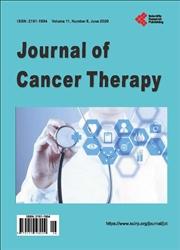Difficult Conversations and Painful Decisions: When Should Patients with Progressive Cancer Stop Chemotherapy?
引用次数: 1
Abstract
Introduction: The decision to stop anti-cancer treatment is fraught with many challenges for the oncologist, the patient, and their caregivers. This review examines the special considerations surrounding the decision to cease chemotherapy in terminally ill cancer patient. Methods: A comprehensive literature search was conducted to find relevant publications on chemotherapy cessation. A total of 2700 records were retrieved and 141 were identified as eligible for inclusion in this review. Results: Palliative chemotherapy does not achieve the goal of tumor-related symptom reduction for patients who have experienced progressive disease with more than two prior lines of chemotherapy. ECOG performance status is a crucial predictor of response to therapy and chemotherapy-related complications. Challenges to stopping chemotherapy at the end of life are multifactorial and are both patient and physician-driven. Racial, ethnic, and income-based disparities are seen in the timing and quality of end-of-life conversations offered by physicians to their patients. Conclusions: The decision to cease chemotherapy is one that should be approached with careful consideration and accurate information. Clear communication, compassion and empathy are important components to the therapeutic relationship. Early involvement of palliative care and clear conversations about prognosis and the expected utility of further chemotherapy is essential to conduct the best possible care for cancer patients at the end of life.艰难的对话和痛苦的决定:进展性癌症患者何时应该停止化疗?
停止抗癌治疗的决定对肿瘤科医生、患者和他们的护理人员来说充满了许多挑战。这篇综述探讨了在晚期癌症患者决定停止化疗时的特殊考虑。方法:全面查阅文献,查找有关停止化疗的相关文献。共检索到2700份记录,其中141份符合纳入本综述的条件。结果:姑息性化疗不能达到缓解肿瘤相关症状的目标,患者已经经历了两个以上的既往化疗线进展的疾病。ECOG表现状态是对治疗反应和化疗相关并发症的重要预测指标。在生命末期停止化疗的挑战是多因素的,并且是由患者和医生驱动的。在医生向病人提供临终谈话的时间和质量上,可以看到种族、民族和收入的差异。结论:停止化疗的决定应经过仔细考虑和准确的信息。清晰的沟通、同情和同理心是治疗关系的重要组成部分。早期参与姑息治疗,明确讨论预后和进一步化疗的预期效用,对于在癌症患者生命结束时提供尽可能最好的护理至关重要。
本文章由计算机程序翻译,如有差异,请以英文原文为准。
求助全文
约1分钟内获得全文
求助全文

 求助内容:
求助内容: 应助结果提醒方式:
应助结果提醒方式:


